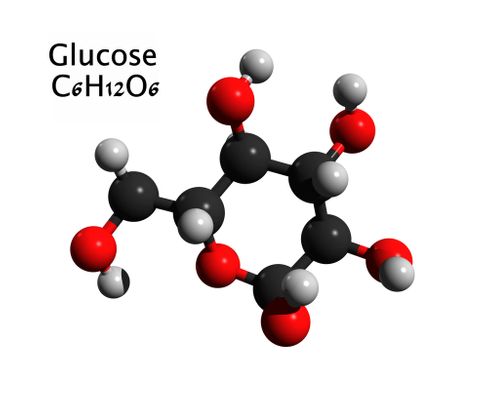6.4.2
Blood Glucose Concentration
Maintaining Blood Glucose Concentration
Maintaining Blood Glucose Concentration
Blood glucose concentration is controlled by homeostasis. The normal concentration is 90 mg 100 cm−3. It is important to maintain a stable blood glucose concentration for two reasons:


Meeting respiratory demands
Meeting respiratory demands
- Glucose is a respiratory substrate.
- There must be enough glucose in the blood to meet the demands of respiring cells.
- If glucose levels are too low, respiration rate will slow.


Maintaining water potential
Maintaining water potential
- Glucose can affect the water potential of the blood.
- An increase in blood glucose concentration will decrease the water potential of the blood.
- Water will move out of tissues into the blood by osmosis. This causes dehydration of the cells and the cells will die.
- Blood pressure also increases.
Factors Affecting Blood Glucose Levels
Factors Affecting Blood Glucose Levels
Blood glucose concentration must be monitored carefully to make sure there is a constant supply of glucose for respiration. Blood glucose levels can be influenced by:


Eating
Eating
- Eating carbohydrates causes an increase in blood glucose concentration.
- Increases in blood glucose levels are monitored by the pancreas.


Exercise
Exercise
- Exercising causes a decrease in blood glucose concentration because glucose is being used in respiration to power muscle contraction.
- Decreases in blood glucose levels are also monitored by the pancreas.
The Liver
The Liver
The liver is an organ that plays an important role in controlling blood glucose concentration. The processes that take place in the liver are:


Glycogenesis
Glycogenesis
- When blood glucose concentration is too high, the liver cells produce enzymes that convert glucose into glycogen. This glycogen is then stored in the liver cells.
- This process is called glycogenesis.


Glycogenolysis
Glycogenolysis
- When blood glucose concentration is too low, the liver cells produce enzymes that break down the glycogen stored in the cells to glucose.
- This process is called glycogenolysis.
,h_400,q_80,w_640.png)
,h_400,q_80,w_640.png)
Gluconeogenesis
Gluconeogenesis
- When blood glucose concentration is too low, liver cells also form glucose from glycerol and amino acids.
- This process is called gluconeogenesis.
1Biological Molecules
1.1Monomers & Polymers
1.2Carbohydrates
1.3Lipids
1.4Proteins
1.4.1The Peptide Chain
1.4.2Investigating Proteins
1.4.3Primary & Secondary Protein Structure
1.4.4Tertiary & Quaternary Protein Structure
1.4.5Enzymes
1.4.6Factors Affecting Enzyme Activity
1.4.7Enzyme-Controlled Reactions
1.4.8End of Topic Test - Lipids & Proteins
1.4.9A-A* (AO3/4) - Enzymes
1.4.10A-A* (AO3/4) - Proteins
1.5Nucleic Acids
1.8Inorganic Ions
2Cells
2.1Cell Structure
2.2Mitosis & Cancer
2.3Transport Across Cell Membrane
3Substance Exchange
3.1Surface Area to Volume Ratio
3.2Gas Exchange
3.3Digestion & Absorption
4Genetic Information & Variation
4.1DNA, Genes & Chromosomes
4.2DNA & Protein Synthesis
4.3Mutations & Meiosis
4.4Genetic Diversity & Adaptation
4.5Species & Taxonomy
4.6Biodiversity Within a Community
4.7Investigating Diversity
5Energy Transfers (A2 only)
5.1Photosynthesis
5.2Respiration
5.3Energy & Ecosystems
6Responding to Change (A2 only)
6.1Nervous Communication
6.2Nervous Coordination
6.3Muscle Contraction
6.4Homeostasis
6.4.1Overview of Homeostasis
6.4.2Blood Glucose Concentration
6.4.3Controlling Blood Glucose Concentration
6.4.4End of Topic Test - Blood Glucose
6.4.5Primary & Secondary Messengers
6.4.6Diabetes Mellitus
6.4.7Measuring Glucose Concentration
6.4.8Osmoregulation
6.4.9Controlling Blood Water Potential
6.4.10ADH
6.4.11End of Topic Test - Diabetes & Osmoregulation
6.4.12A-A* (AO3/4) - Homeostasis
7Genetics & Ecosystems (A2 only)
7.1Genetics
7.2Populations
7.3Evolution
7.3.1Variation
7.3.2Natural Selection & Evolution
7.3.3End of Topic Test - Populations & Evolution
7.3.4Types of Selection
7.3.5Types of Selection Summary
7.3.6Overview of Speciation
7.3.7Causes of Speciation
7.3.8Diversity
7.3.9End of Topic Test - Selection & Speciation
7.3.10A-A* (AO3/4) - Populations & Evolution
8The Control of Gene Expression (A2 only)
8.2Gene Expression
8.2.1Stem Cells
8.2.2Stem Cells in Disease
8.2.3End of Topic Test - Mutation & Gene Epression
8.2.4A-A* (AO3/4) - Mutation & Stem Cells
8.2.5Regulating Transcription
8.2.6Epigenetics
8.2.7Epigenetics & Disease
8.2.8Regulating Translation
8.2.9Experimental Data
8.2.10End of Topic Test - Transcription & Translation
8.2.11Tumours
8.2.12Correlations & Causes
8.2.13Prevention & Treatment
8.2.14End of Topic Test - Cancer
8.2.15A-A* (AO3/4) - Gene Expression & Cancer
8.3Genome Projects
Jump to other topics
1Biological Molecules
1.1Monomers & Polymers
1.2Carbohydrates
1.3Lipids
1.4Proteins
1.4.1The Peptide Chain
1.4.2Investigating Proteins
1.4.3Primary & Secondary Protein Structure
1.4.4Tertiary & Quaternary Protein Structure
1.4.5Enzymes
1.4.6Factors Affecting Enzyme Activity
1.4.7Enzyme-Controlled Reactions
1.4.8End of Topic Test - Lipids & Proteins
1.4.9A-A* (AO3/4) - Enzymes
1.4.10A-A* (AO3/4) - Proteins
1.5Nucleic Acids
1.8Inorganic Ions
2Cells
2.1Cell Structure
2.2Mitosis & Cancer
2.3Transport Across Cell Membrane
3Substance Exchange
3.1Surface Area to Volume Ratio
3.2Gas Exchange
3.3Digestion & Absorption
4Genetic Information & Variation
4.1DNA, Genes & Chromosomes
4.2DNA & Protein Synthesis
4.3Mutations & Meiosis
4.4Genetic Diversity & Adaptation
4.5Species & Taxonomy
4.6Biodiversity Within a Community
4.7Investigating Diversity
5Energy Transfers (A2 only)
5.1Photosynthesis
5.2Respiration
5.3Energy & Ecosystems
6Responding to Change (A2 only)
6.1Nervous Communication
6.2Nervous Coordination
6.3Muscle Contraction
6.4Homeostasis
6.4.1Overview of Homeostasis
6.4.2Blood Glucose Concentration
6.4.3Controlling Blood Glucose Concentration
6.4.4End of Topic Test - Blood Glucose
6.4.5Primary & Secondary Messengers
6.4.6Diabetes Mellitus
6.4.7Measuring Glucose Concentration
6.4.8Osmoregulation
6.4.9Controlling Blood Water Potential
6.4.10ADH
6.4.11End of Topic Test - Diabetes & Osmoregulation
6.4.12A-A* (AO3/4) - Homeostasis
7Genetics & Ecosystems (A2 only)
7.1Genetics
7.2Populations
7.3Evolution
7.3.1Variation
7.3.2Natural Selection & Evolution
7.3.3End of Topic Test - Populations & Evolution
7.3.4Types of Selection
7.3.5Types of Selection Summary
7.3.6Overview of Speciation
7.3.7Causes of Speciation
7.3.8Diversity
7.3.9End of Topic Test - Selection & Speciation
7.3.10A-A* (AO3/4) - Populations & Evolution
8The Control of Gene Expression (A2 only)
8.2Gene Expression
8.2.1Stem Cells
8.2.2Stem Cells in Disease
8.2.3End of Topic Test - Mutation & Gene Epression
8.2.4A-A* (AO3/4) - Mutation & Stem Cells
8.2.5Regulating Transcription
8.2.6Epigenetics
8.2.7Epigenetics & Disease
8.2.8Regulating Translation
8.2.9Experimental Data
8.2.10End of Topic Test - Transcription & Translation
8.2.11Tumours
8.2.12Correlations & Causes
8.2.13Prevention & Treatment
8.2.14End of Topic Test - Cancer
8.2.15A-A* (AO3/4) - Gene Expression & Cancer
8.3Genome Projects

Unlock your full potential with GoStudent tutoring
Affordable 1:1 tutoring from the comfort of your home
Tutors are matched to your specific learning needs
30+ school subjects covered